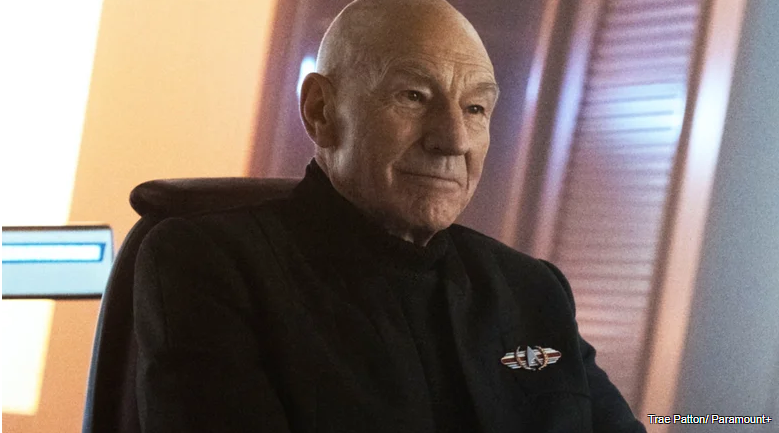Star Trek: Picard: Patrick Stewart Didn’t Mean To Look Like He Was Having A Bad Time
When offered the role of Captain Jean-Luc Picard on “Star Trek: Picard,” Patrick Stewart only agreed to return to “Star Trek” on the condition that Picard no longer wear the red Starfleet uniform with which his character is closely associated in “The Next Generation.” That way, Picard’s appearance in this latest spinoff is distinct from his look during his original run.
In an interview The Los Angeles Times published, Stewart further detailed some of the differences between his past and present takes on Picard. In addition to his uniform stipulation, Stewart revealed that, upon agreeing to return, he also insisted that “Picard” not merely rely on nostalgia but rather carve out its own identity.
He also shared that, when watching his work on “Picard,” he thinks that his character looks like he’s having a bad time. “That wasn’t my intention, but that was what was being communicated. Anxiety, stress, irritation,” he said.
Then, Stewart recalled a rare instance in which Picard yells in “Star Trek: First Contact,” which fans have famously mocked. Initially, he thought that viewers would react to a similar moment in the “Picard” finale the same way. “I thought, ‘At least, because there aren’t any more episodes, nobody will be making fun of me.’ We made fun of one another a lot,” he continued, revealing a wry self-consciousness about his work in spite of his considerable experience and skill as an actor.
Patrick Stewart enjoyed the opportunity to show a wide range of emotion in Star Trek: Picard

Later on in this same Los Angeles Times interview, Patrick Stewart elaborated further on his approach to scenes in which Jean-Luc Picard expresses heightened emotions in “Star Trek: Picard.” While he may find that Picard comes off as inadvertently dour when reviewing on his own work, he described moments in which his character reacts emotionally as a highlight of his time on the “Star Trek” sequel series.
“I looked forward to those scenes where Picard was not just anxious but actually frightened. Or confused. Or not knowing what to do,” he said. “I got great satisfaction out of playing those things, because they allowed me to investigate, and release, aspects of Jean-Luc that had really never appeared in ‘Next Generation.'”
Stewart, then, effectively characterized the way in which Picard may look like he’s not having the greatest time as his default state. Picard’s departures from his emotional center, like in the Season 3 finale outburst that Stewart thought fans might ridicule, therefore contribute significantly to what makes “Picard” distinct from “The Next Generation,” and more than just a nostalgic retread of a classic property.

